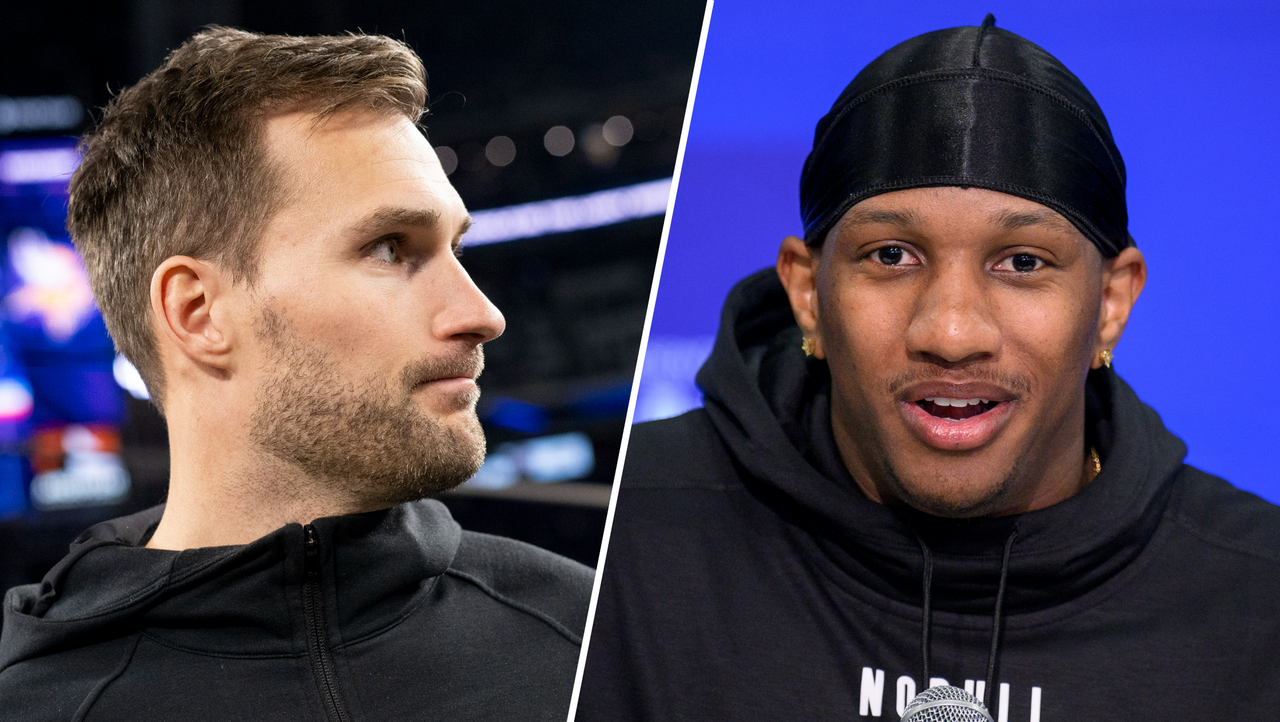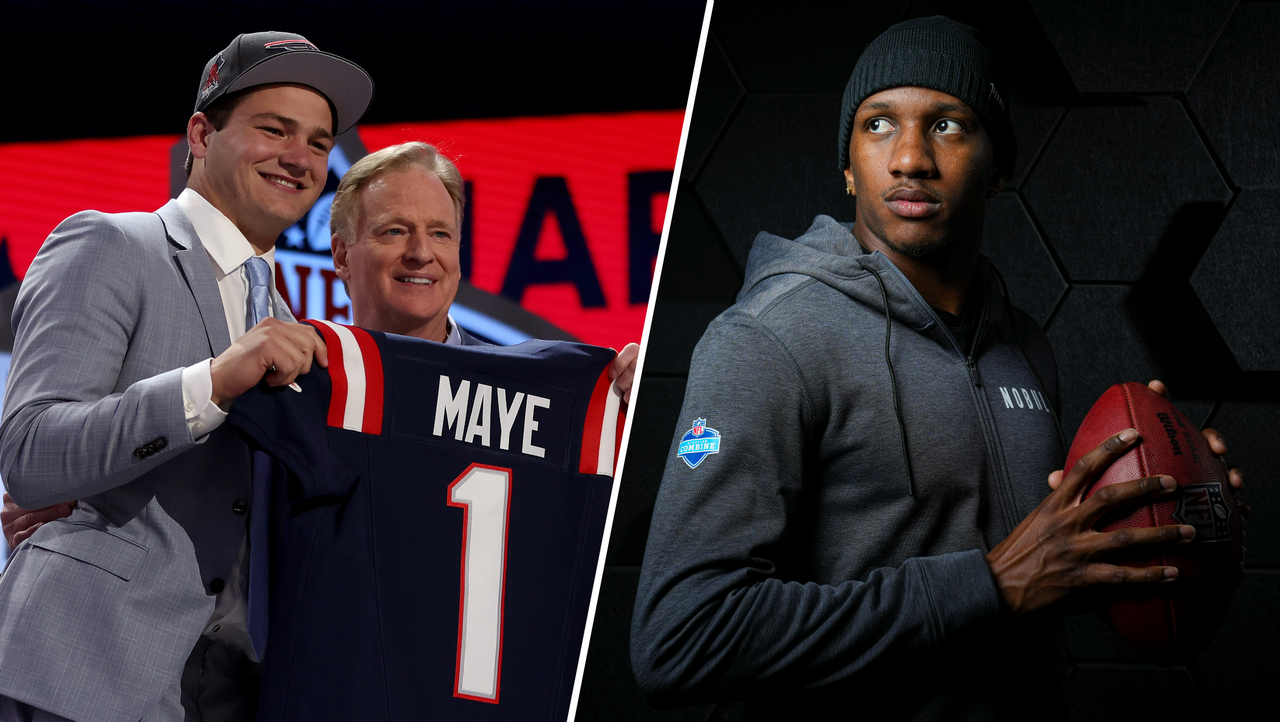A former Penn State official charged with enforcing discipline at the school said Tuesday that Joe Paterno's players got in trouble more often than other students, and got special treatment compared to non-athletes.
Vicky Triponey, who resigned her post as the university's standards and conduct officer in 2007, confirmed that she sent a 2005 email to then-president Graham Spanier and others in which she expressed her concerns about how Penn State handled discipline cases involving football players. The Wall Street Journal published excerpts from the email on Tuesday.
Paterno "is insistent he knows best how to discipline his players ... and their status as a student when they commit violations of our standards should NOT be our concern ... and I think he was saying we should treat football players different from other students in this regard,'' Triponey wrote in the Aug. 12, 2005, email.
"Coach Paterno would rather we NOT inform the public when a football player is found responsible for committing a serious violation of the law and/or our student code," she wrote, "despite any moral or legal obligation to do so.''
The email surfaced as Penn State is reeling in the aftermath of criminal charges filed this month against Jerry Sandusky, a former assistant football coach accused of molesting eight boys, some on campus, over a 15-year period.
The scandal has resulted in the ousting of school President Graham Spanier and Paterno, whom trustees felt did not do enough about one accusation involving a 10-year-old boy. Athletic Director Tim Curley has been placed on administrative leave, and Vice President Gary Schultz, who was in charge of the university's police department, has stepped down.
Schultz and Curley are charged with lying to a grand jury and failing to report to police, and Sandusky is charged with 40 counts of child sex abuse. All maintain their innocence.
Interviewed by The Associated Press at her Charleston home, Triponey said that throughout her tenure at Penn State there was ``an ongoing debate'' over who should deal with misconduct by football players.
Sports
In partnership with NBC Sports Philadelphia
Her 2005 email was sent the day after a heated meeting in which Paterno complained about the discipline process.
"He knew better than anyone how to discipline them. We wanted to show him the (disciplinary) data and suggest that 'Well, whatever it is we're doing, it's not working.' They're getting into trouble at a greater rate than they should. We wanted to find a way to address that,'' she said. ``The meeting ended up being a one- sided conversation with the coach talking about his frustrations, his anger, his not being happy with the way we were running the system.''
Paterno's lawyer, Wick Sollers, defended his client in a written statement.
"The allegations that have been described are out of context, misleading and filled with inaccuracies,'' he said. ``In the current atmosphere, it is not surprising that every aspect of Penn State University's academics and athletics will be reviewed.''
Penn State football has long been regarded as an example of a well-run program that graduates an above-average percentage of its players while operating within the rules and winning on the field. But the Sandusky case has forced a re-examination of the Nittany Lions and Paterno's 46-year tenure as coach, highlighted by two national championships.
A review of Associated Press stories over the last decade shows at least 35 Penn State players faced internal discipline or criminal charges between 2003-09 for a variety of offenses ranging from assault to drunk driving to marijuana possession. One player was acquitted of sexual assault.
Penn State has hired former FBI director Louis Freeh to lead an internal investigation of the Sandusky case, while the NCAA announced last Friday it was launching its own inquiry focused on Sandusky and whether Penn State exercised ``institutional control'' in handling accusations against him. Asked Tuesday whether other disciplinary cases at Penn State would be reviewed, an NCAA spokeswoman said she had nothing else to say at this time.
Triponey, who arrived at Penn State in 2003 -- four years after Sandusky retired and a year following an alleged assault by him in the football showers -- told ESPN's "Outside the Lines'' she was not involved in any conversations with or about the former assistant coach.
She told the AP that pressure to go easier on football players increased as her tenure went on.
"Many times, (because of) the pressure placed on us by the president or the football coach, eventually, we would end up doing sanctions that were not what another student would've got," she said. "It was much less. It was adapted to try to accommodate the concerns of the coach.''
Triponey said she's a longtime football fan and worked at universities for most of her career. She said the relationship with coaches was different at other places, citing Randy Edsall, whom she worked with at Connecticut, as an example of someone who ran an open program and helped his players learn from mistakes. Edsall is now head coach at Maryland.
"He would invite us to go on road trips to the away games so we could see inside the program,'' Triponey said. "But there was a wall at Penn State where we never had that kind of relationship."
Curley and Spanier did not reply to messages for comment. A representative for Curley told the Journal that "he tried to make sure all student athletes were treated equally with regard to the code of conduct."



